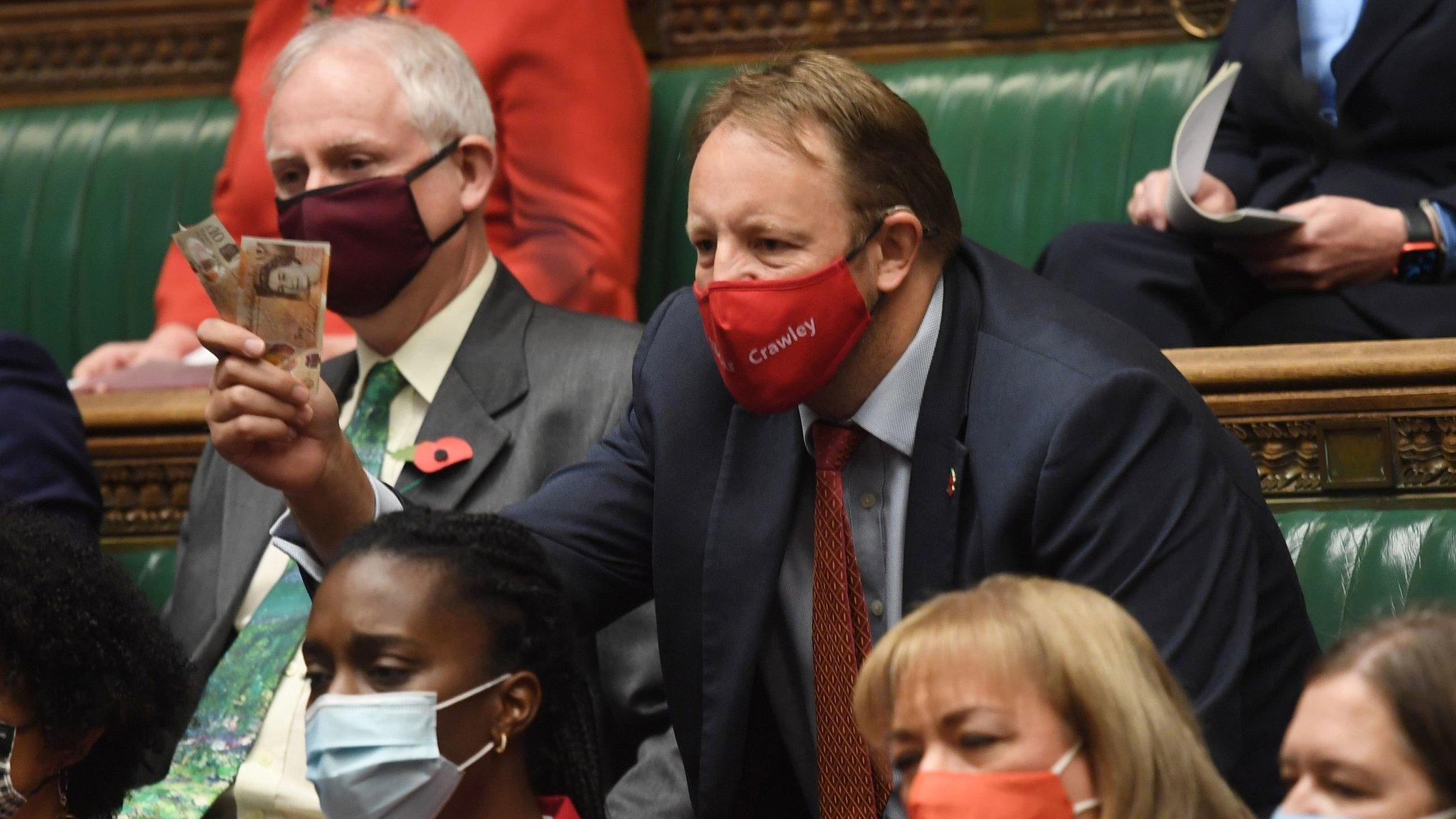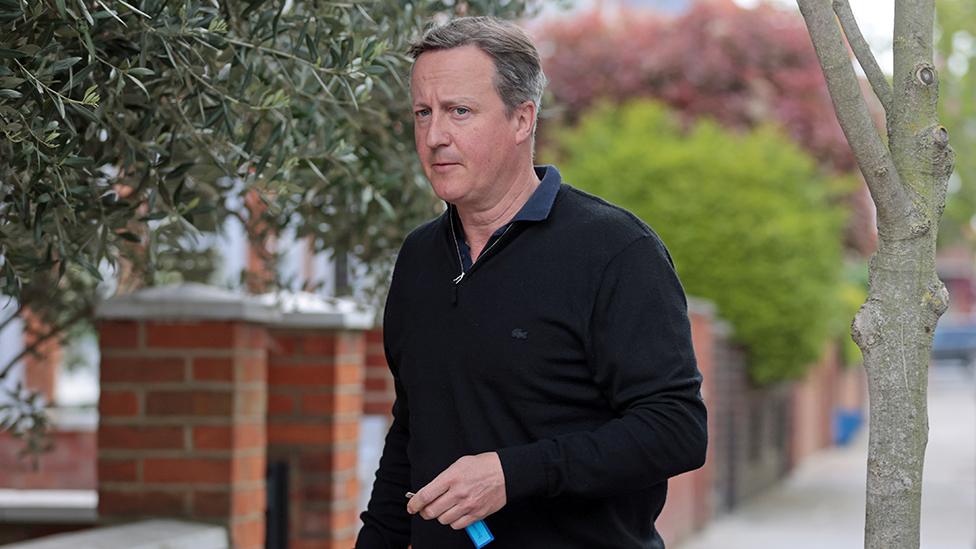Increase lobbying ban for ex-ministers, urges watchdog
- Published

David Cameron became an adviser to Greensill Capital in 2018, two years after leaving Downing Street
Former ministers and top officials should face bans on lobbying government for up to five years, an ethics watchdog has said.
In a report, the Committee on Standards in Public Life said the current two-year ban "may be too short in some cases".
It also suggested rules on taking post-government jobs should be written into civil servants' contracts.
The recommendations come in the wake of the Greensill Capital lobbying row.
Former PM David Cameron's attempts to influence ministers on behalf of the now-collapsed finance firm two years after leaving office have led to greater scrutiny of links between government and the private sector.
The revelation that ex-civil servant Bill Crothers joined Greensill as an adviser in September 2015 while still working for the government has also sparked a debate over the rules for senior officials.
The committee, which advises the prime minister on ethical standards across public life in England, has been reviewing the current rules since last autumn.
Publishing its interim findings, external on Monday, it said government departments should be able to issue longer lobbying bans "where they deem it appropriate" - although it should "not become the default".
The longer cooling-off period may be needed, it said, for people in senior jobs or in roles where inside information would remain relevant for longer.
'Unfit for purpose'
It also suggested giving the rules greater teeth by writing them into civil servants' contracts of employment, and setting up "parallel legal arrangements" for ministers.
Acoba, the body responsible for overseeing government rules on business appointments, currently has no powers to sanction people who ignore or breach the rules.
In its report, the committee said "relying on transparency alone" had not proved enough to ensure public confidence in the system.
Labour's deputy leader Angela Rayner backed the longer five-year lobbying ban, calling the current rules "completely unfit for purpose".
A spokesperson for the Cabinet Office said it would "carefully" consider the committee's final recommendations in the autumn.


It is unusual for the committee to publish its findings at this stage.
The move is another marker of the concern in Westminster about the transparency of lobbying and the potential impact on public trust.
The report backs a number of the criticisms which have been made.
For the most part, the committee's solutions lie in strengthening the existing rules and mechanisms.
It does want to see a major change though in enforcement, adding legal teeth to a system which currently largely relies on people voluntarily following the rules after they've left a job.
In any case though, it would still be for the prime minister to decide to make any changes when the committee reports formally later this year.

The review also named Mr Cameron when it recommended that "informal" lobbying of ministers via phone and text messages should be reported to officials so they can be included in regular transparency releases.
It said the former Tory leader made "extensive" use of phone calls and text messages to contact ministers and officials last year, as Greensill sought involvement in government Covid loan schemes.
But a "loophole" in the rules meant they did not have to be disclosed because they were not part of an official meeting, it noted.
It recommended ministers should have to disclose "serious" and "credible" messages they receive, as well as those given "substantive consideration" by officials or advisers.
Mr Cameron has defended his role lobbying for Greensill, which filed for insolvency in March.
He said he had not broken any rules but admitted he should have used "only the most formal" means, such as a letter, to make contact.
He also conceded that it "could be appropriate" for former ministers to have to wait longer before contacting government about commercial issues.

Greensill's demise has triggered a series of inquiries and reviews
Elsewhere, the committee also recommended that the prime minister's adviser on standards should be able to launch independent investigations into ministers suspected of breaching the code that governs their conduct.
At the moment, the adviser can only launch such inquires if told to do so by the prime minister. The PM also decides if the code has been breached.
The committee said this lack of independence had undermined public confidence in the code - and a recent change enabling the adviser to "confidentially" raise concerns with the PM did not represent a "substantive improvement".
The committee also said that, if a wider range of sanctions were put in place, there would be no reason why the adviser could not also have the power to decide breaches of the code.
It added the longstanding expectation that ministers should resign if a breach is found had led to prime ministers being unwilling to give the adviser more independence.
Related topics
- Published5 November 2021

- Published15 April 2021

- Published9 August 2021
